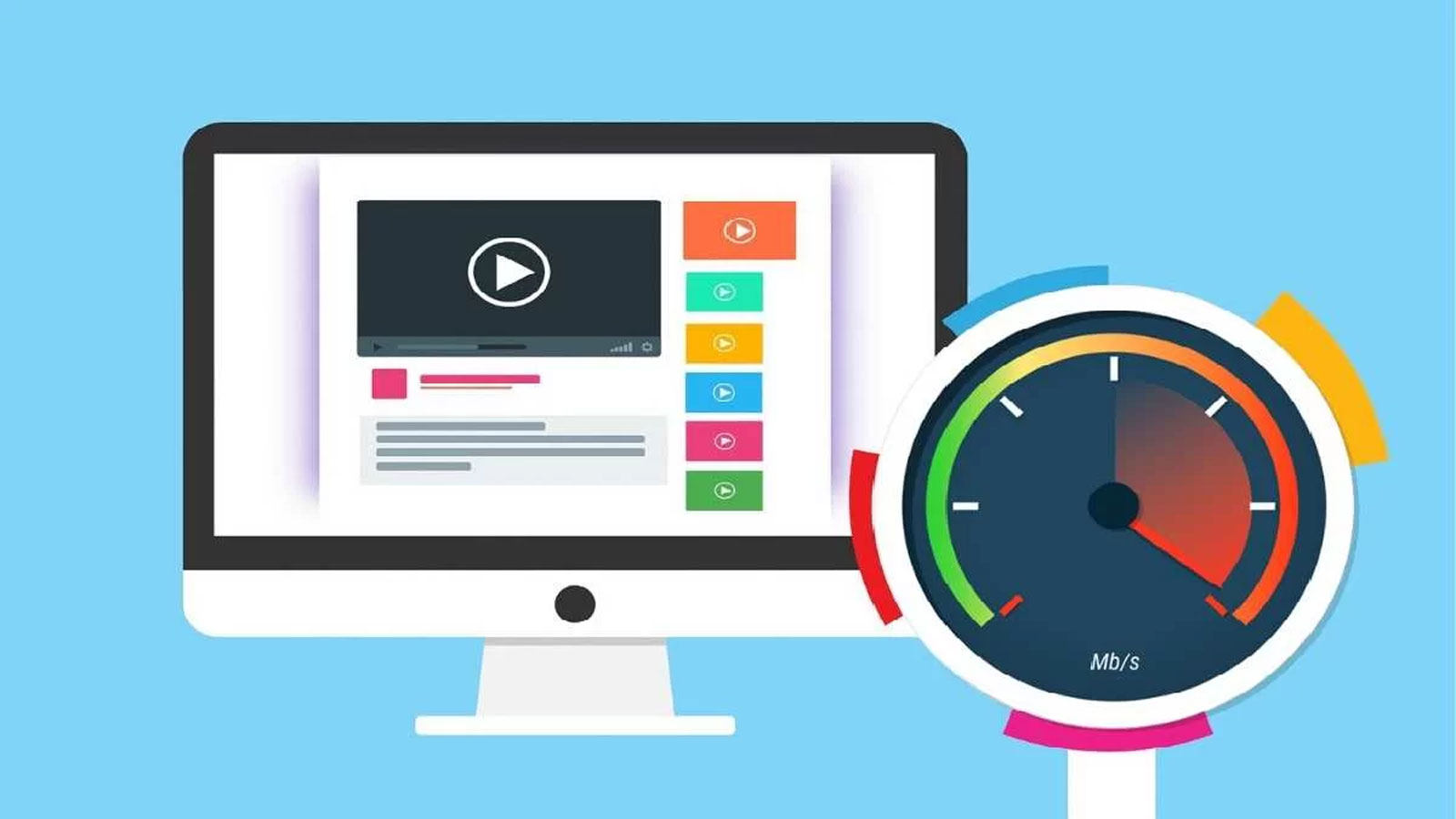Internet speed test: find out how your plan is performing
Are you getting the speeds you're paying for?

So you’ve compared internet plans and found the best option to fit your budget and needs. But, whether you've signed up to one of the best NBN plans or you've ditched fixed-line for a 5G home internet plan, you want to make sure that your provider is giving you the speeds you expect and — more importantly — that you’re paying for.
Whether you’re suspicious you’re experiencing a slow service or you’re just curious to check your internet speed — you may find you’re getting speeds faster than those advertised — you can easily find out using the Ookla speed test on this page.
Simply click the ‘Go’ button in the widget below and the speed test will return figures for download and upload speed, which you can compare against the advertised speeds of the internet plan you’re signed up to.
What speed should I be getting?
Why you can trust Tom's Guide
When you’re looking at internet plans from different providers, you’ll notice they report a typical evening speed figure, which refers to the download speed you can expect during the peak evening hours of 7pm to 11pm.
During these hours, a higher number of people are expected to be using the network, causing speeds to potentially slow down. NBN providers have had to quote this figure since 2017 in response to the Australian Competition & Consumer Commission’s (ACCC) claims that some providers were misleading customers with their speed claims. 5G home internet providers were asked to start reporting typical evening speeds in November 2022.
The good news is that the majority of NBN providers are now delivering either the full download speeds of the tier you’re signed up to, or at the very least, the typical evening speed figures they quote. In some cases, some telcos actually exceed the advertised speeds, as is regularly evident in the ACCC’s Measuring Broadband Australia performance report.
These reports have previously found that some telcos, including Launtel, Exetel and Optus, deliver over 100% of the advertised plan speeds, not just during all hours of the day, but during the busy evening hours too.
But, while they do serve as a good indication as to which telcos offer a more compelling option compared to others, they're not a guarantee that you too will achieve similar results. This isn't necessarily due to the telco, but it's more the result of various environmental or situational factors that are out of the telcos' or your control.
What are the NBN speeds?
You may already be pretty familiar with the different speed tiers offered on the NBN, but if you’re not, you can find out more information in our complete NBN speeds guide. Essentially, there are six speed tiers offering increasingly faster download speeds which comprise:
• Basic I/NBN 12 – Maximum download speed of 12Mbps
• Basic II/NBN 25 – Maximum download speed of 25Mbps
• Standard/NBN 50 – Maximum download speed of 50Mbps
• Fast/NBN 100 – Maximum download speed of 100Mbps
• Superfast/NBN 250 – Maximum download speed of 250Mbps
• Ultrafast/NBN 1000 – Maximum download speed of 1000Mbps
The speed tier you can sign up for will be dependent on the NBN connection type available at your property. Fibre-to-the-premises (FTTP) and hybrid fibre coaxial connections are capable of supporting all speed tiers, but all other connection types max out at the NBN 100 tier.
How do I test my internet speed?
The easiest way to check your internet speed is to click but 'Go' button on the Ookla Speedtest widget further up this page. Let the test run its course (it only takes a few seconds) and you'll be presented with figures for download speed and upload speed.
To get the most accurate results you'll want to connect your laptop or computer directly to your router via an Ethernet cable, providing a more stable connection with minimal interference.
If you need to conduct the speed test via Wi-Fi — perhaps if you're viewing this page on your smartphone — then try and sit as close to your Wi-Fi router as possible to minimise interference.
We always recommend running the test several times and certainly at different times during the day, so you can see if you're getting consistent results.
What do the results mean?
It's unlikely you're going to get 100% of your internet plan's advertised speeds – especially during the busier evening hours – so if your internet speed test results fall short of what you expected, it's not always cause for concern.
We always recommend performing the internet speed test at various times throughout the day to see if you're getting consistent speeds. If there are some major discrepancies, then it's worth resetting your modem or router and re-running the test.
Of course, there are some factors that will affect your internet speed that are hard to prevent, such as having a number of devices connected to the internet at the same time.
As we mentioned earlier, too, the connection type you have at your property can affect the download speed you achieve. Fibre-to-the-node (FTTN) connections, for example, tend to see a drop in speed the further away your property is from the main distribution node.
Looking for a faster plan?
If you're not totally satisfied with the speed of your internet plan then you might want to look into upgrading to a faster speed tier (if you have the connection type to support it) or changing provider. Different providers can advertise different typical evening speeds, so it's well worth shopping around for the best deals.
Below you'll find live-updated lists of the most popular – and fast – NBN and 5G home internet plans for you to compare.
Internet speed test FAQ
What internet speed should I be getting?
The internet speed you should be getting is the advertised speed of your NBN plan. If you’re on an NBN 100 plan for example, you should achieve 100Mbps download speeds. This figure may drop during the busier evening hours, but some NBN providers still quote the maximum possible download speeds.
What is a good internet speed?
The best internet speed for you will depend on the number of people in your household and what you need the internet for. If you live by yourself, then an NBN 25 or NBN 50 plan should offer speeds fast enough for whatever you need the internet to do, whether it be video streaming, video conference calls or downloading large files.
If you live in a multi-user household with multiple devices needing to connect to the internet, then you’ll need to think carefully about what speed tier will suit you best. An NBN 50 plan could be enough, but if there are four or more people in your household, then you’ll likely need an NBN 100 plan instead.
Why do internet speed test results change each time?
The results of an internet speed test can change each time you run one due to a number of factors, including the time of day you’re conducting the test, the device you’re testing from and the number of people using the network.
You’ll also find that performing an internet speed test over Wi-Fi will return slower speed results compared to testing when you connect your device to the modem via an Ethernet cable.
Sign up to get the BEST of Tom's Guide direct to your inbox.
Get instant access to breaking news, the hottest reviews, great deals and helpful tips.

Max is a digital content writer for Tom’s Guide in Australia, where he covers all things internet-related, including NBN and the emerging alternatives, along with audio and visual products such as headphones and TVs. Max started his career in his homeland of England, where he spent time working for What Hi-Fi? and Pocket-lint, before moving to Australia in 2018.
